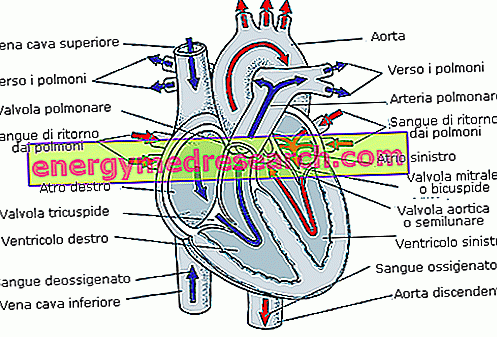FIBRASE® is a polysulfester Pentosan based drug.
THERAPEUTIC GROUP: Antithrombotics
IndicationsAction mechanismStudies and clinical effectiveness Usage and dosage instructionsWarnings Pregnancy and lactationInteractionsContraindicationsUndesirable effects
Indications FIBRASE ® Pentosano polysulesterester
FIBRASE ® is indicated in the treatment of pathological conditions associated with a deficiency of fibrinolysis. Thanks to its different formulations, it is effective in the prevention of thrombophilic states or as an adjunct in the pathology of felbit, drip and embolic thrombus.
Action mechanism
Polysulfester pentosan, taken orally by FIBRASE ® is absorbed at the gastrointestinal level, thanks to its low molecular weight, and maintained in the circulatory stream for only a few minutes. After a half-life of about 40/60 minutes, it is effectively eliminated intact through urine and faeces.
Although it is not entirely known its activity at the molecular level, the heparinoid structure and the different experimental evidences confirm the hypothesis of a mechanism of action comparable, with the appropriate differences, to that of heparin.
The therapeutic efficacy of FIBRASE, which makes it useful for use in the clinical field, is essentially due to the anticoagulant, antithrombotic, fibrinolytic and anti-platelet aggregation and erythrocyte activity.
Studies carried out and clinical efficacy
FIBRINOLITIC ACTIVITY OF THE THROMBOSAN
Although the manufacturer defines a recommended dosage, several studies seem to agree on a certain interindividual variability In the biological activity of pentosan, which does not allow to predict its therapeutic efficacy. For this reason, several experts suggest carrying out a load test before defining the therapeutic dosage.
2. THE THERAPEUTIC EFFECTIVENESS OF THE EPARINOIDS
The antithrombotic efficacy of heparinodes has been observed and characterized on different animal models. However, the antithrombotic effects described, which appear to occur a few moments after the administration of the drug, tend to decrease very quickly once the drug is stopped. The maximum therapeutic efficacy is obtained thanks to parenteral administration.
3. THE SIDE EFFECTS OF THE PENTOSAN
Tardy-Poncet B, Tardy B, Grelac F, Reynaud J, Mismetti P, Bertrand JC, Guyotat D.
One of the reasons for the poor clinical application of this active ingredient is the presence of several reports reporting the onset of episodes of severe immunoallergic thrombocytopenia and subsequent thrombosis. For this reason it is of fundamental importance to ascertain the absence of hypersensitivity to heparin before starting treatment with FIBRASE.
Method of use and dosage
FIBRASE ® 50 mg polysulfester Pentosan capsules: used in the treatment of thrombophlebitis and superficial thrombosis drips, with the following therapeutic scheme: 2 capsules 3 times a day in the first two weeks and 2 capsules twice a day in the following four. The duration of treatment and any adjustments to the dosage should be evaluated by your doctor after a careful evaluation of the patient's clinical picture.
FIBRASE ® in vials can be administered intramuscularly or intravenously, under strict medical supervision. The dosage and duration of treatment must necessarily be established by your doctor.
FIBRASE ® in ointment, usable for example in the case of ulcers, should be applied to the affected skin several times a day.
IN ANY CASE, BEFORE TAKING FIBRASE ® Pentosano polisolfoestere - THE PRESCRIPTION AND CONTROL OF ITS OWN DOCTOR IS NECESSARY.
Warnings FIBRASE ® Pentosano polysulesterester
Like other antithrombotic drugs, and in order to avoid the onset of potentially dangerous side effects, therapy with FIBRASE ® should be preceded and accompanied by periodic checks of the coagulation framework.
More intense monitoring and greater caution should be maintained for patients with an increased risk of bleeding, providing immediate suspension if the clinical and hematological picture is compromised.
Before intravenous or intramuscular administration, an intradermal test capable of manifesting any allergic reactions to the active ingredient or to one of its excipients would also be necessary.
FIBRASE ® does not directly affect the ability to drive vehicles or use machinery.
PREGNANCY AND BREASTFEEDING
FIBRASE ® is contraindicated during the period of pregnancy and lactation, given the lack of studies showing the absence of risks to the health of the fetus and the newborn.
Interactions
The increase in anticoagulant power, with the consequent risk of bleeding and bleeding could be supported by the concomitant administration of drugs active on the coagulation system, such as antithrombotics, heparin, warfarin and non-steroidal anti-inflammatory drugs.
Contraindications FIBRASE ® Pentosano polysulesterester
FIBRASE ® is contraindicated in cases of recent cerebral-vascular accidents, haemophilia, pathologies or traumas with increased risk of bleeding, subacute bacterial endocarditis, abortion, and in case of hypersensitivity known to one
Undesirable effects - Side effects
The most common side effects are mainly related to the anticoagulant action of FIBRASE ®, they can manifest themselves in the form of hematomas, gastro-intestinal haemorrhages, epistaxis and hematuria in the most severe cases
Thrombocytopenies of varying degrees, even severe, and increased transaminases have rarely been described.
Note
FIBRASE ® is available only under medical prescription.



